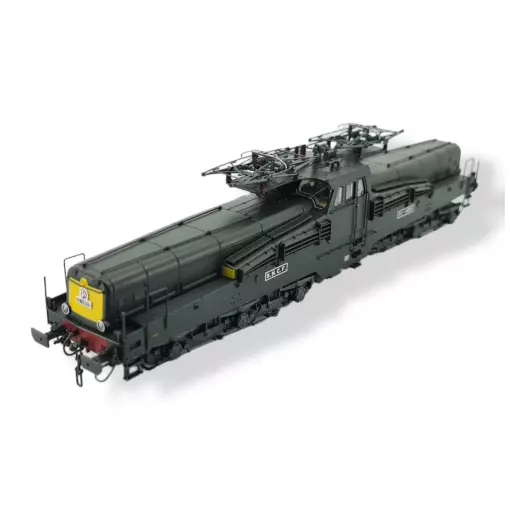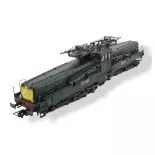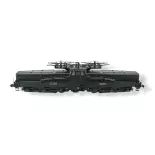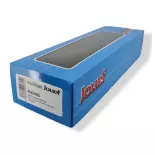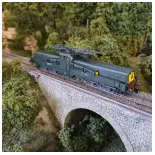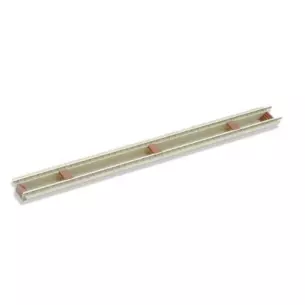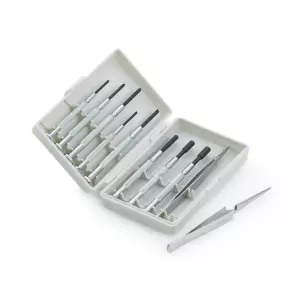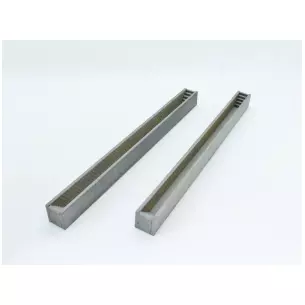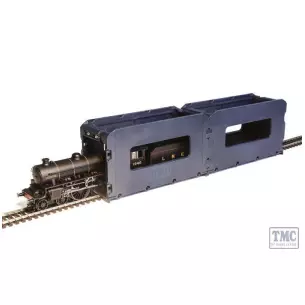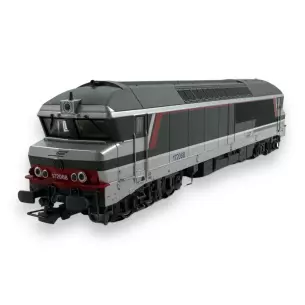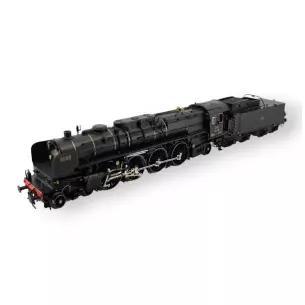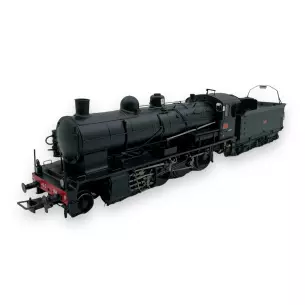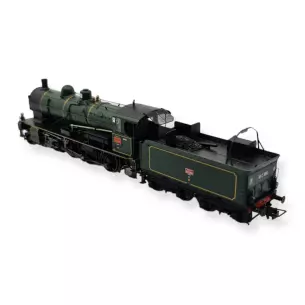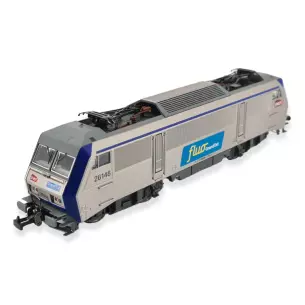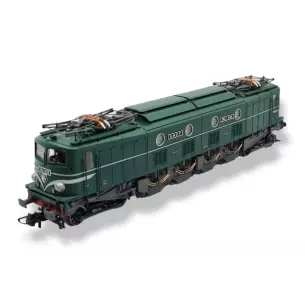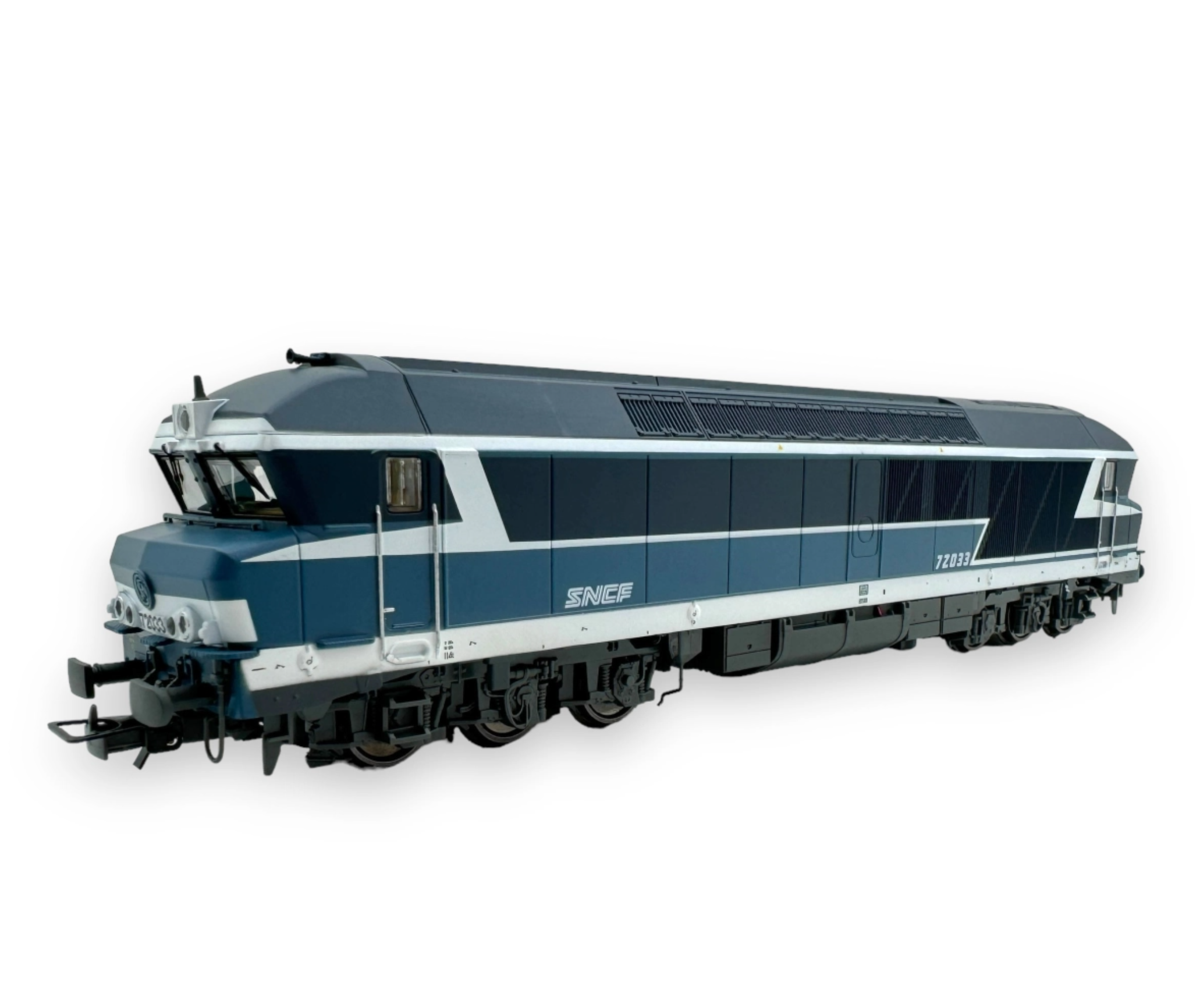Under the reference JOUEF HJ2423, here is a Electric locomotive CC 14015 in HO 1/87th scale, in a 2-rail analogue version.
Features:
- Model running on direct current "2 rails", analogue.
- This magnificent locomotive has a green livery, affiliated with the SNCF company during Era III.
- Model benefiting from a 21-pin NEM socket to NEM 660 standards.
- It has a 5-pole motor, flywheel, 2 lanterns and narrow couplers.
- Lighting-wise, the machine offers 2 reversible red and white lights, which embody LED technology.
A little touch of history:
The CC14001 to 14020 locomotives were built between 1954 and 1959 by the Oerlikon/CGC firm. Like their cousins BB12000, 13000 and CC14100, they were nicknamed "Irons" because of the distinctive shape of their central driver's cab. They are fitted with single-phase, three-phase equipment and were only intended to pull heavy goods trains.
The 25000 V 50 Hz single-phase current picked up by the pantograph is first lowered by the primary transformer to 1100 V. The current powers a rotating machine converting the single-phase into three-phase, then a second rotating machine acting as a frequency converter. Finally, the current feeds the 6 three-phase squirrel-cage traction motors, whose motor pinions drive the axle rings directly.
The CC 14000s have suffered numerous breakdowns during their career, and their average mileage is 1.5 million kilometres. Although three-phase motors are, on the face of it, more reliable due to the absence of a commutator, it was the complexity of their power supply that caused problems. However, advances in power electronics have made it possible to validate the use of this type of traction motor, on the Eurostar TMST for example.
Their career ended some fifteen years before that of the CC 14100, after a much lower mileage than the other " irons ". Their cousins, the CC 14100, were based on more primitive technology, but proved more reliable in practice.
.






